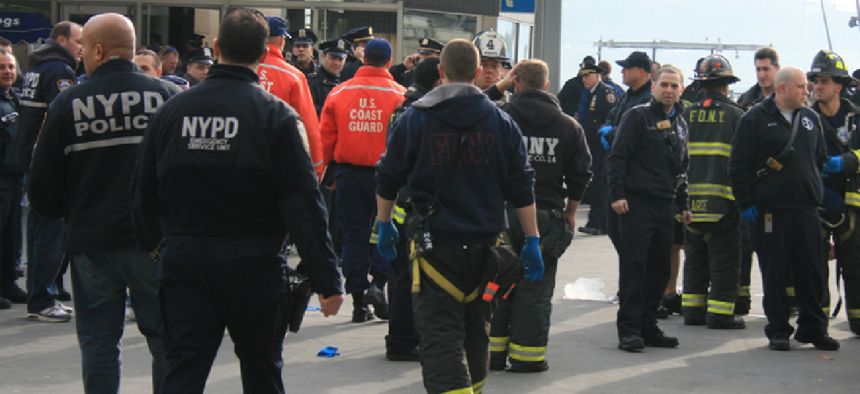A digital wallet for first responder credentials

The Mobile Device and Attributes Validation app uses a digital wallet of "capsules," each holding a validated attribute or credential for first responders.
At an emergency or natural disaster, field officers need to quickly and accurately verify responders' law enforcement identity or medical credentials, often in areas with little or no network bandwidth. And as smart as smartphones may be, no one has figured out a way to use them to securely store digital identity credentials for first responders.
“What is frankly ironic … is that as we go from analog to digital we lose some of the subtleties in analog that help people detect counterfeits,” said
Stephen Wilson, managing director of Lockstep Technologies, an Australia-based identity management consulting firm. “Good old-fashioned plastic has got features like holograms. None of that is available on a mobile phone. Nothing stops you from photographing a permit or license and waving it around on a mobile phone.”
Until now, that is. Lockstep, with funding from the Cyber Security Division at the Department of Homeland Security, has developed a method for ensuring the authentication of credentials – including the issuing agency -- on mobile devices.
Mobile Device and Attributes Validation reconfigures regular public key infrastructure certificates to encapsulate attributes, allowing them to be shared between mobile applications. The MDAV capsules replicate conventionally issued credentials, including their issuers, but they can’t be cloned, counterfeited, tampered with or loaded to unapproved devices. Capsules are presented directly from one MDAV app to another and cryptographically verified locally.
“There is a wallet app and the field person has a reader,” Wilson said. “The MDAV app leverages the cryptography within the phone so that if somebody presents a ‘working-with-children’ clearance, for example, a QR code comes up and the reader checks the QR code.”
The MDAV app is network independent, Wilson said, and fully compatible with FirstNet, the dedicated network for first responders being constructed by the federal government.
The plan is to launch MDAV at the end of 2018, after a further round of development and testing with DHS. “In the meantime,” Wilson said, “we want to talk with FirstNet and others.”
As of now, Lockstep is looking to partner with a larger company that can take the application to market effectively and support it. The company is also developing an application programming interface so other developers can use the technology to build credential security in different forms, Wilson said. “There are more possibilities than just a wallet app,” he said. “We are looking forward to working with other innovators and system integrators to bring out different forms of this technology. For example, we can integrate this with existing identity management systems to improve the way the credentials are protected against counterfeiting.”





